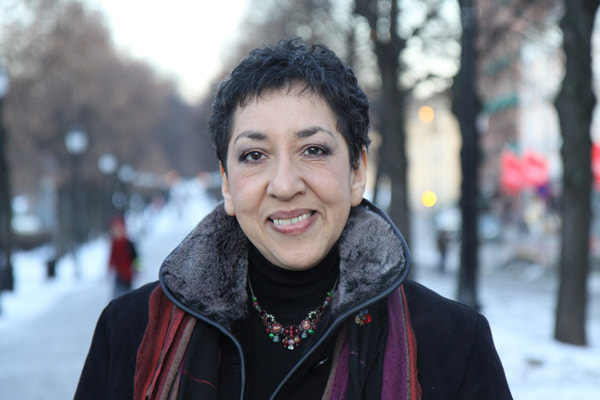|
The complete archive of award-winning novelist Andrea Levy has been acquired by the British Library.
Future novels, working drafts, intended and early rejection letters are among the archive of writer best known for her 2004 novel Small Island which chronicles the experiences of Windrush Generation immigrants to England, the Mother Country after the Second World War. Other items in the archive include working drafts for her five published novels. In a statement the British Library said the acquisition would offer the public an “opportunity to explore Levy’s life and legacy in much greater depth”. Andrea Levy was an internationally bestselling author whose work explored her own experiences as a daughter of Windrush Generation parents who came to Britain in the post-war period, and examines the history and connections between Britain and the Caribbean. After earning a degree in textile design and working in graphics, Levy began writing in her mid-thirties and rose to international prominence with Small Island. The book won the Orange Prize, the Whitbread Novel Award, Whitbread Book of the Year, the Orange Best of the Best and the Commonwealth Writers’ Prize. Levy’s 2010 follow-up The Long Song was short-listed for the Booker Prize and won the Walter Scott Prize for Historical Fiction. Levy’s extensive research into the history of Jamaica and her own family background is a key part of the archive, which includes audio recordings of interviews with her mother Amy Levy, used in the writing of Small Island. There are also short stories, digital records and Levy’s email archive. Correspondence ranges from early rejection letters to letters of support and praise from writers such as Toni Morrison, Margaret Forster, Linda Grant and Joan Bakewell. It also contains notes and drafts for unpublished and unrealised work. Included within this are ideas for future novels, such as her intended sixth novel planned to portray the story of a marriage between a black woman and a white man and an unproduced screenplay about the life of Mary Seacole demonstrating the Jamaican nurse’s compassion and determination. Notably, the archive also contains a darkly comic unpublished dialogue, written without expectation that others would see it, in which Levy faces up to her imminent death from cancer. Other papers present in the archive document Levy’s commitment to issues of representation, diversity and inclusion, particularly as Executive Producer on the screen adaptation of The Long Song and in other collaborations with Lenny Henry, Gary Younge and Baroness Lola Young. Zoë Wilcox, Curator of Contemporary Performance and Creative Archives, at the British Library said: “Andrea Levy’s voice is present throughout her papers: vivid, alive, often chivvying herself along with notes to self in red pen. “Whether writing about role models as diverse as James Baldwin and Julie Andrews, or trying to convince herself that her life was worthy of a memoir, Levy’s modesty, humour, and commitment to confronting the truth are evident throughout. Levy was an extraordinary writer whose literary significance will be celebrated for years to come. Wilcox added: “Her writing is witty, unfailingly human, and consistently places British-Caribbean history at the centre of our national consciousness. We are incredibly proud that the British Library has acquired the archive for the nation in accordance with Andrea’s wishes. Following a first glimpse of her papers in our 2018 exhibition Windrush: Songs in a Strange Land, this acquisition will offer researchers the opportunity to explore Levy’s life and legacy in much greater depth.” The British Library’s oral history collections also contain Levy’s ‘Authors’ Lives’ interview for National Life Stories. The full recording comprising over 14 hours of material is available to listen to onsite at the British Library. Levy’s husband Bill Mayblin, said:“Late in her life it came as a surprise to Andrea that her carefully saved boxes of notes, letters and early drafts could become something as posh-sounding as an archive. But once convinced of it there was only one place she ever wanted that archive to go, and that was to the British Library. “Not only had the Library greatly helped her research as a writer, but because much of her work examined British colonial history – a history full of omission and injustice – it seemed fitting, and somehow just, that her archive should finally find a home in a truly national institution.” He added: “She would be very pleased that through the British Library her work and her story is now owned, and valued, by we British.” Source : The Voice, 10 February 2020 |
Archives
May 2022
Categories |


 RSS Feed
RSS Feed